Discovering who you are: ‘Authentic Selves,’ a new book and photo exhibit, celebrates trans and non-binary people
Gazette Staff Writer
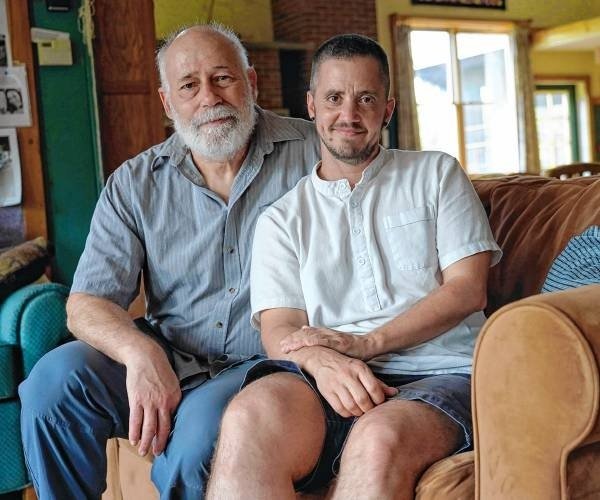
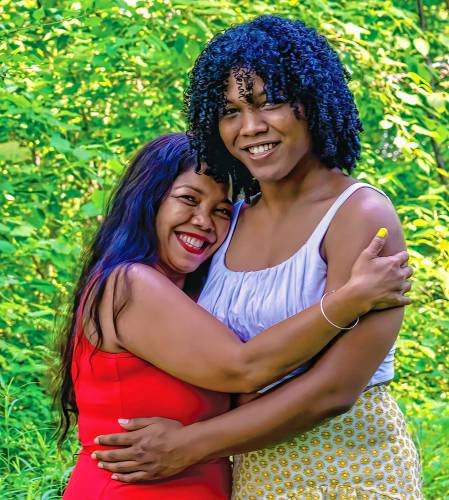
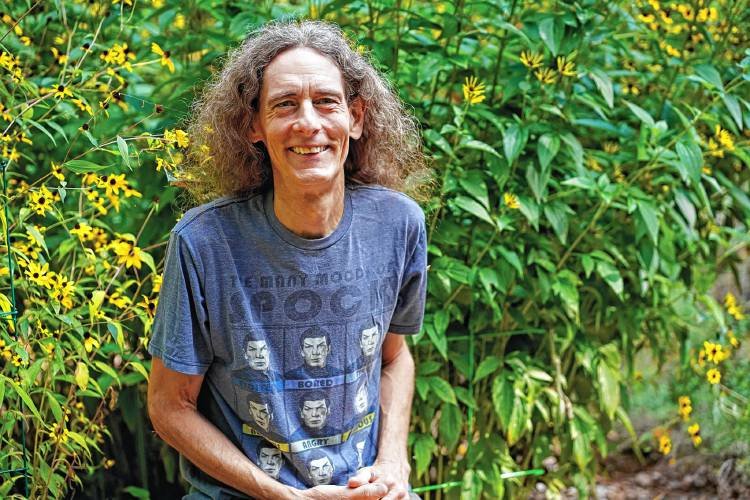
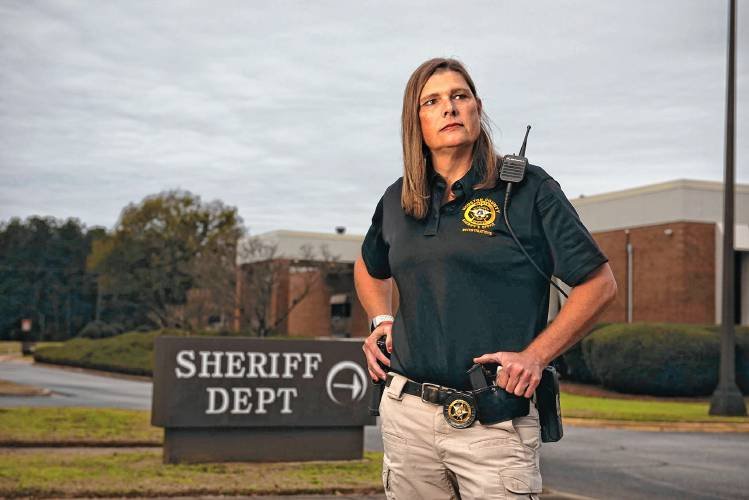
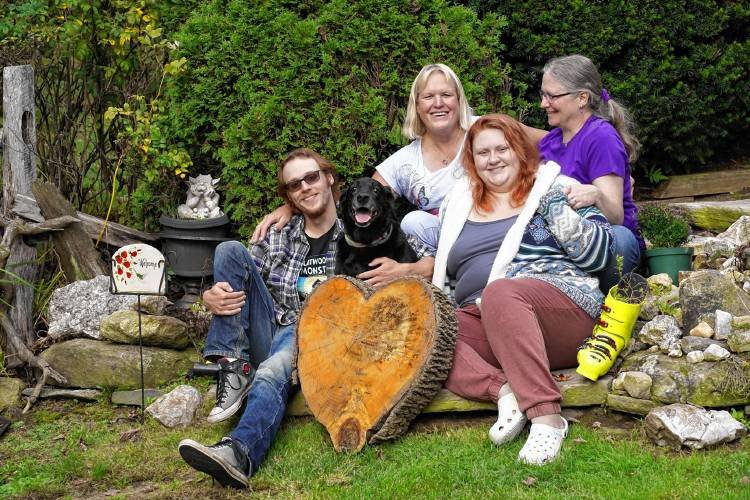
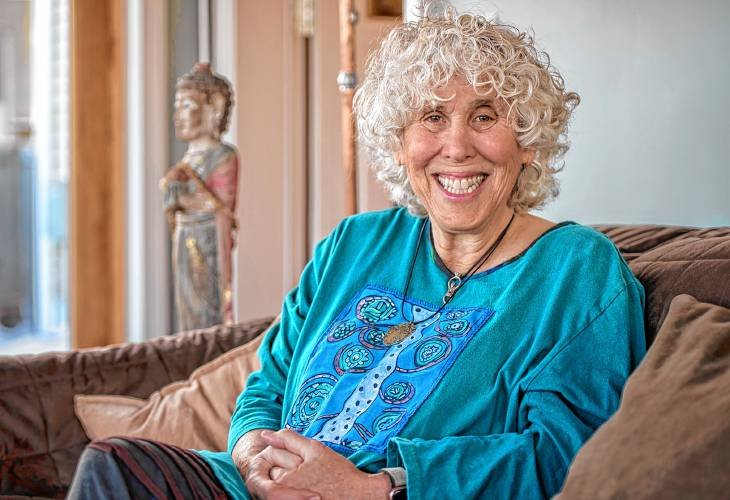
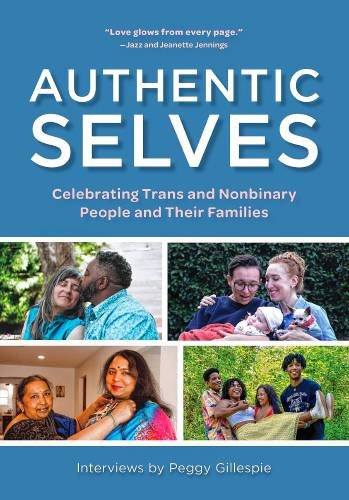
When it comes to transgender rights, the headlines across many parts of the country have become increasingly ugly in the last several months.
At least 15 states, all controlled by Republicans, have banned or restricted gender-affirming medical care for transgender kids. Books on gender diversity have been removed from school libraries. High school musicals with LGBTQ characters have been canceled. Florida now forbids classroom instruction on gender identity and sexual orientation in all levels of public schools.
And a transgender Montana state representative has been banned by her Republican colleagues from the state house floor for speaking out against an anti-trans bill in the state.
But in the Valley, there’s an antidote of sorts to this. “Authentic Selves,” a book and accompanying photo exhibit, offer portraits of trans and non-binary people from this region and beyond, in which people tell in-depth stories about themselves and their families.
The exhibit is on display this month at the Unitarian Society in Northampton, as well as for students, staff, and family at The Center School in Greenfield; the Greenfield exhibit will also be open to the public May 17 from 6 to 8 p.m.
It’s the newest project by Peggy Gillespie, a Northampton writer and social worker who runs Family Diversity Projects, a nonprofit group that’s produced a variety of photo exhibits over the years, all with the goal of fighting prejudice against people due their to sexual orientation, race, nationality, religion or other personal circumstances.
Perhaps the most well-known project Gillespie and her longtime photographic collaborator, Gigi Kaeser, have produced is “Love Makes a Family,” a late 1990s exhibit and book that offered portraits of LGBTQ People and their families.
In 2017, responding to the anti-immigrant rhetoric coming out of the Trump White House, they released “Building Bridges,” which profiled immigrants, refugees, and asylum seekers who had made new lives in the U.S.
During a recent phone call, Gillespie said that after “Building Bridges,” she became interested in following up a photo exhibit on transgender people that Family Diversity Projects had produced in 2008, “Pioneering Families: Portraits of Transgender People,” a project initially suggested and created by Jack Pierson, their Smith College intern at the time.
“A few years ago, I began thinking we should expand on that,” she said. “It felt it out of date, and there were new words being used to describe the varieties of gender expressions like non-binary that we needed to explore. Plus the whole issue had become much more visible.”
Working over Zoom during the pandemic to interview trans and non-binary people from over 40 different families, Gillespie says she was struck by the “courage and open hearts” of people who had sometimes been rejected by their parents when they came out, and by their stories of finally figuring out their identity and living happily after years of confusion, self-doubt and grief.
“I kept falling in love with person after person,” she said. “So many people showed such remarkable spirit.” She was also encouraged to see how many had eventually found acceptance within their families or created their own families of choice.
Gillespie developed her project — she worked with some different photographers, as Kaeser was not able to participate in much of “Authentic Selves” — in collaboration with a few other organizations, including Transgender Legal Defense & Education Fund.
Gillespie says she’s been horrified by the anti-trans bills and actions that have cropped up in many states, and by the physical threats and violence trans people have faced, as she’s worked on her new book and exhibits. Given that, the project feels especially timely — and vital — to her.
“My hope and mission is to really challenge the hatred that’s directed at people who just want to live their lives as who they are,” she said.
Speaking up
One of those people is Ted Rau, an Amherst resident who came out as a transgender man about five years ago after living as a woman for years and giving birth to five children.
A native of Germany, Rau came to the U.S. with his family about 10 years ago and now lives with his partner, Jerry, but says he has a good relationship with his ex-husband, Jochen. They all live close by one another and his kids “go back and forth between my ex’s house and my house,” he told Gillespie.
His children also have been fine about his new identity, he says; they’re interviewed in the book as well.
In a phone call with with the Gazette, Rau said he wanted to take part in “Authentic Selves” because he felt much better about himself as a man and wanted to share that with others who were questioning their identity.
“I was already out, so I wanted to be there for people who can’t do that yet for whatever reason,” he said.
Rau also feels he’s been largely accepted in the Valley since his transition, but he acknowledges now feeling “a little scared” about being featured in “Authentic Selves” because of the anti-trans sentiment elsewhere in the U.S.
“It’s actually less about me than my kids,” he said.
At the University of Massachusetts Amherst, Genny Beemyn, the longtime director of the school’s Stonewall Center, the LGBTQIA+ resource center, said they were familiar with a number of Gillespie’s previous projects and wanted to be part of this new one.
“I wanted to be sure there were some non-binary voices in the book,” said Beemyn, who is non-binary and in their interview describes the long journey they took to discover that identity. “I think [the book] does a really good job of raising awareness of what that means.”
In retrospect, Beemyn added, they’re especially happy to have contributed to “Authentic Selves,” given the legislation that’s been coming out of what they call “the hate states” that has stigmatized trans people.
“We have to respond to that and offer people something better,” said Beemyn, who also praised UMass administrators for working with them over the years to make the campus more trans-inclusive.
Gillespie also spoke with Angelle Eve Castro, a young trans woman from Amherst, who talks about having contemplated suicide when, as a male teenager, she struggled with feeling trapped in the wrong gender.
Angelle’s mother, Angelica Canlas Castro, in turn recalls the time Angelle told her, at age 21, that she was trans: Her first feeling was of heartbreak for her daughter, that Angelle had felt obligated to keep this information secret for so long.
But “there was not even a moment of hesitation or a question in my heart and mind of whether I would accept Angelle,” Castro says in her interview. “[S]he was the same beautiful person I birthed into this world.”
Further afield, Gillespie interviewed Anna Lange, a deputy sheriff in Georgia who transitioned from male to female and had to sue her county government to get her health insurance to cover her surgery.
Lange’s relationship with her brother broke down over her change, and it took awhile for her parents to come around — but her relationship with her teenage son, Riley, has remained strong.
At The Center School in Greenfield, for students from preschool age through eighth grade, Charlie Spencer, the head of school, says she and other staff “jumped” at the opportunity to display the “Authentic Selves” exhibit.
“A huge part of our mission is to affirm and recognize the dignity and identity of all people,” said Spencer, who noted that some students come from families with trans and non-binary members. “And sharing that message with children is so important for creating greater acceptance for everyone.”
“We can see how much love is in this exhibit,” she added. Teachers have been walking their students through it, Spencer said, and students’ families members have also viewed it: “It’s so moving.”
The photo exhibit is on view as well at The Common School in Amherst for students, staff, and family members, where school co-heads Linda Donnelly and Dana Kadish say gender identity, along with social justice and acceptance of all people, is built into the curriculum.
Gillespie says the exhibit made its debut last month at Penn State University, and she anticipates the three copies of the exhibit will be displayed in many other places in the coming months.
Meantime, as she writes in an introduction to the book, “I continue to hold onto hope that this world will someday be a safe and welcoming place for all people … [and that] this book will be valuable because beautiful depictions of families are always inspiring.”
More information about “Authentic Selves” can be found at familydiversityprojects.org.
Steve Pfarrer can be reached at spfarrer@gazettenet.com.
